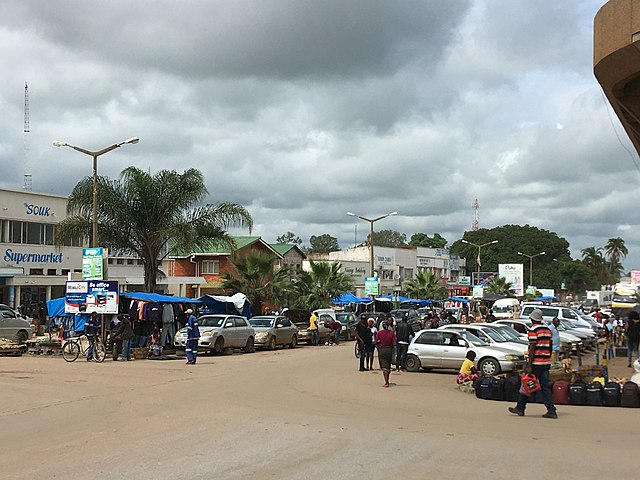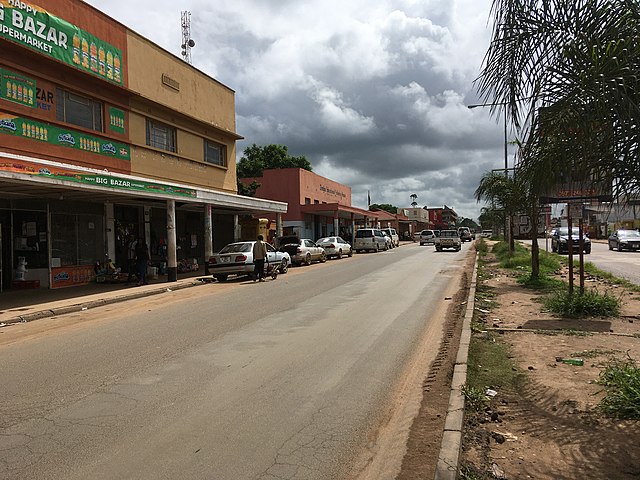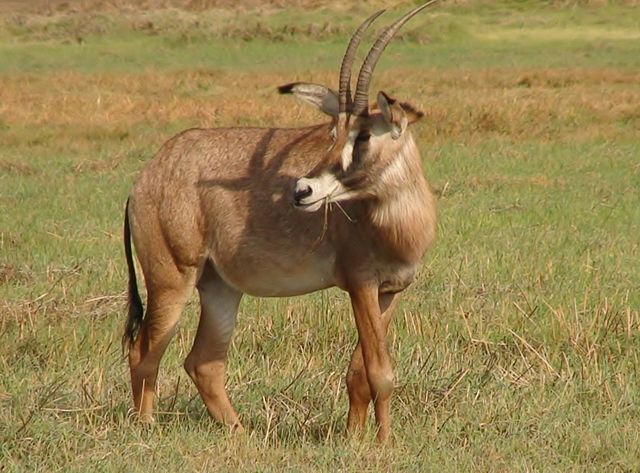Kabwe is the capital of the Zambian Central Province and the Kabwe District, with a population estimated at 202,914 at the 2010 census. Named Broken Hill until 1966, it was founded when lead and zinc deposits were discovered in 1902. Kabwe also has a claim to being the birthplace of Zambian politics as it was an important political centre during the colonial period.
Downtown Kabwe, looking down Freedom Way, with the Big Tree National Monument in the distance
The Big Tree National Monument, a large fig tree (Ficus sycomorus) historically used as a meeting place and now converted into a park (1974)
St. Augustine's Major Seminary, (Catholic)
The Great North Road (T2) in Kabwe, just east of its intersection with Buntungwa Street
Central Province is one of Zambia's ten provinces. The provincial capital is Kabwe, which is the home of the Mulungushi Rock of Authority. Central Province has an area of 94,394 km (58,654 mi). It borders eight other provinces and has eleven districts. The total area of forest in the province is 9,095,566 ha, and it has a national park and three game management areas. The first mine in the region was opened up in 1905 making the then Broken Hill town the first mining town. In 1966, the town's name was reverted to its indigenous name - Kabwe meaning 'ore' or 'smelting'.
Kundalila Falls
Lukanga Swamp
Roan antelope in Kafue National Park







